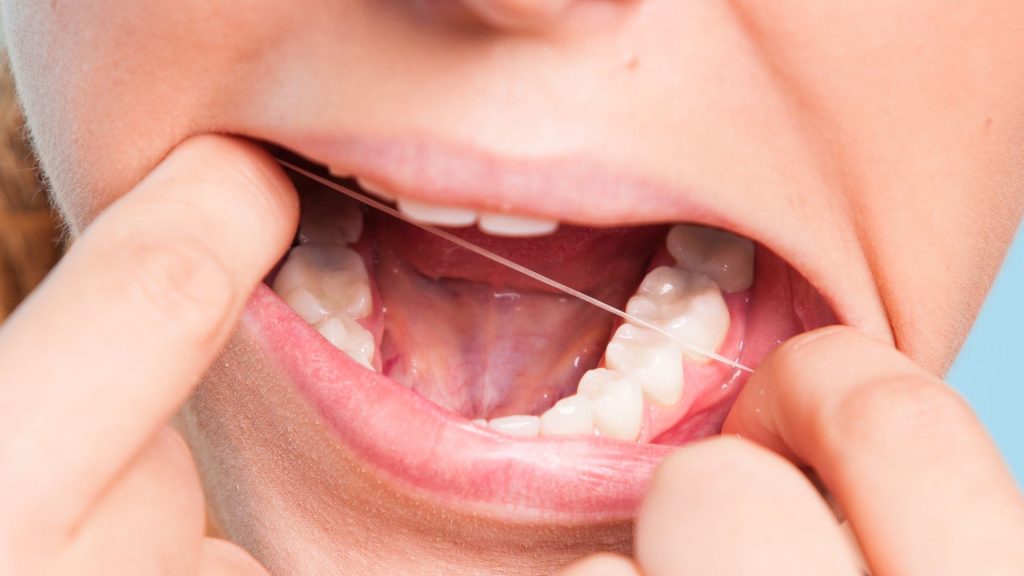Food stuck in wisdom tooth hole is a typical dental issue following extraction. Questions concerning the origin, severity, and treatment of food impaction in the empty socket are understandable given the associated pain and irritation. This article will discuss the causes, symptoms, effects, and solutions to food being caught in the wisdom teeth hole. To confidently handle this dental issue, we’ll present a thorough guide to preventive, self-care, and expert help. We’ll discuss ways to prevent food from becoming stuck in the wisdom tooth hole for better dental health.
Food Stuck In Wisdom Tooth Hole Causes And Symptoms


Several issues might emerge and cause pain during the procedure of getting your wisdom teeth extracted. After wisdom teeth are removed, food often gets caught in the socket. This may be a very bothersome and unpleasant scenario for you. The origins and symptoms of this ailment can help you understand it and how to treat it.
Reasons Food Gets Trapped In Wisdom Teeth
Your body is recuperating and responding to the oral structural alteration after wisdom teeth removal. This makes it simple for food to become lodged in cavities. Know these key causes and symptoms:
- Unhealed or infected cavity: The cavity must heal or develop infected after wisdom teeth removal. When a cavity has not completely healed or is infected, it might leave gaps or uneven surfaces that make it more likely that food will get lodged and cause pain.
- Cavity development following wisdom tooth removal: The cavity following wisdom teeth removal might leave gaps between teeth, making food easier to become caught in.
- Inflammation: The skin surrounding the fossa might enlarge and constrict the hollow, causing swelling, redness, and food to become lodged.
- Thinking about eating: Small chunks of meat, fibrous veggies, and other fibrous foods may become lodged in cavities.
- Poor oral hygiene: Pain and discomfort after wisdom tooth removal make dental hygiene harder. Without proper dental hygiene, food may become lodged and cause illness.
Now we know why food gets trapped in the wisdom tooth hole so often. Next, we’ll take a look at the signs that food has been lodged between your wisdom teeth.
Evidence Of Food Stuck In The Wisdom Tooth Hole
After having your wisdom teeth out, you may suffer a variety of unpleasant symptoms if food becomes lodged in the empty socket. Symptoms of food being lodged in a cavity include:
- Discomfort and pain: Food stuck in the socket might cause pain and discomfort in this location. This may make eating marshmallows and other foods difficult and unpleasant.
- The feeling of obstruction when eating: Chewing or swallowing food lodged in the socket may be uncomfortable. This may make eating uncomfortable.
- Inflammation and swelling: The skin around your eye socket may become puffy, red, or painful if food becomes lodged there, causing inflammation.
- Bad breath: Food trapped in cavities promotes plaque and bacteria growth. This may cause foul breath.
Self-treatment For Food Stuck In The Wisdom Tooth Socket
The ability to tackle painful circumstances on our own, such as when food becomes lodged in the wisdom tooth socket, requires a certain amount of self-assurance and preparation.
Guide to Flossing Wisdom Teeth Socket Food


Note the procedures below to complete this process properly and effectively. A temporary approach to remove food from the wisdom teeth socket is flossing. Consult your dentist for significant pain or discomfort.
Step 1: Prepare and clean
Wash your hands before starting to guarantee cleanliness. To clean the wisdom tooth socket, rinse your mouth with warm water or salt water.
Step 2: Prepare the floss
Be careful to wash your hands completely before starting. The recommended length of floss is 15-20 cm. Select a floss that is both gentle and easy to clean. Make sure the floss has been sterilized and is free of any germ-causing substances before using it.
Step 3: Wisdom tooth socket food removal manipulation
Cut the floss carefully and bend one end to make a little “crane”. Insert the “crane” gently between the wisdom teeth socket and sticky food. This procedure should be done softly to minimize oral mucosa injury. Insert the “crane” deeply into the fissure and lightly push. Get floss to contact food and remove it from the wisdom tooth socket.
Step 4: Clean up after removing food
Double-check that all food is out of the wisdom teeth socket. Clean the area with warm salt water or alcohol-free mouthwash. Note:
- To prevent harm to the oral mucosa, remove the food from the wisdom tooth socket softly and gradually.
- Stop immediately and visit your dentist if you develop extreme pain, or discomfort, or are unable to remove food.
How To Treat Gently?
It’s important to seek out professional help from a dentist if food becomes lodged between your wisdom teeth. However, here is a simple self-treatment you might try if you are experiencing discomfort: Getting food stuck in your wisdom teeth is a major dental emergency. If anxiety is getting the best of you, try this easy self-treatment.
- Using warm salt water: Rinse the area around the wisdom tooth hole with warm salt water to clean it. Saltwater is antibacterial, anti-inflammatory, and clean.
- Use non-alcoholic mouthwash to remove food particles from your mouth. This removes germs and plaque around the wisdom tooth socket.
- Heat water: Rinse your mouth gently with warm water to remove food from the wisdom teeth socket.
Finally, be cautious while temporarily clearing out the wisdom teeth socket. If the problem persists or the discomfort becomes intolerable, you should see a dentist.
How to Avoid Food From Becoming Caught In The Tooth Socket Future?
You may avoid future problems with food becoming lodged in the wisdom tooth socket by practicing good dental hygiene and dietary habits. Here are some precautions you may take to avoid this problem:?
- Regular oral hygiene: Brush your teeth twice a day with a gentle toothbrush and floss between them. This reduces food sticking by removing plaque and extra food.
- Careful diet: Avoid fluids or tiny meals that can fit in the wisdom tooth hole. Limit hard meals like hard bread, boneless meat, and nuts.
- Be careful when chewing food: Sip food properly before swallowing to prevent breaking it into fragments that may become lodged in the wisdom teeth socket.
- Regular dental check-ups: Visit your dentist twice a year for cleanings and checkups. The dentist may inspect the wisdom tooth socket and extract the tooth if required.
- Adjusting the diet after wisdom teeth removal: If you have wisdom teeth removed, eat softly and avoid pressing on the tooth hole to prevent harm and food from becoming trapped.
After dealing with food in the wisdom tooth socket, we must learn how to prevent it.
When Dental Intervention Is Needed?
If you’ve tried self-care for food stuck in your wisdom teeth and are still suffering discomfort, pain, or other symptoms, it’s time to contact a dentist. Dental care is necessary at times because:
- Food is impossible to get rid of.
- Extremely painful.
- Swelling, inflammation, and bleeding are all possible outcomes.
- Inability to eat or communicate.
Finally, a dentist may discover the reason and provide a remedy, such as avoiding particular foods, cleaning more often, or undergoing therapy. Find and treat the cause of the infection. Maintaining proper oral hygiene is a primary concern, therefore see a dentist on a frequent basis if required.
When food becomes lodged in the wisdom tooth socket, it causes pain and might harm our dental health. Self-treatment helps relieve pain, but Spring Orchid Clinic dentists can assist in addressing the problem. You’ll find physicians at Spring Orchid Dental Clinic who are competent, dedicated, and knowledgeable. We know that removing wisdom teeth is difficult, but it’s vital to prevent food from becoming trapped. We promise to do all in our power to ensure your treatment is risk-free, pleasant, and pain-free.
Contact Spring Orchid Dental Clinic now to discuss wisdom teeth to get a confident smile and optimal oral health.
FAQs
What Happens If Food Gets In The Wisdom Tooth Hole?
Food in wisdom tooth canals might create problems. The following are conceivable outcomes and circumstances.
- Frozen food may irritate the wisdom tooth socket. Pain, color changes, and infection risk are possible.
- Abscesses and pain: Food in the mouth may hurt the oral mucosa and teeth.
- Mucositis: Food retention may cause inflammation and ulcers in the mouth’s lining.
- Trapped food produces bacteria, increasing infection and inflammation risk.
- Food in the wisdom teeth socket may irritate the mouth and throat, causing nausea and vomiting.
- Irritation, infection, and tooth problems may result from untreated trapped food.
Can I Touch My Wisdom Teeth Hole?
Yes, you may gently touch your wisdom teeth hole but do so with care and adequate dental hygiene. Some rules to bear in mind are as follows.
- Clean Hands: Make sure your hands are clean before touching the wisdom teeth hole. Avoid putting potentially harmful germs in your mouth by washing them completely with soap and water.
- Gentle Touch: Brush the wisdom tooth hole carefully to eliminate food and debris. Overpressing or prodding the region might cause discomfort or harm.
- Use Clean Tools: Use clean, oral hygiene-specific instruments like dental picks and rinses advised by your dentist. Avoid scratching the socket’s healing tissue.
- Avoid Disturbing Blood Clot: Wisdom teeth extraction causes a blood clot in the socket to promote healing. It’s important to avoid contracting this blood clot to prevent infection and promote recovery.
- Rinse Gently: Gently rinse your mouth with salt water or mouthwash as directed by your dentist. This keeps the socket clean and reduces infection risk.
Therefore, wisdom teeth extraction recovery might differ from person to person. If you have chronic pain, bleeding, swelling, or other odd symptoms, see your dentist. For a smooth recovery, emphasize dental cleanliness and follow your dentist’s advice.
Does Everyone Require Wisdom Teeth To Avoid Food Clogging?
No, not everyone has to have their wisdom teeth out to prevent their food from becoming caught between their teeth. The location and form of wisdom teeth, the individual’s dental health, and other criteria typically determine wisdom tooth removal. Some things to remember:
- Accessibility: Wisdom teeth are frequently at the rear of the jaw and are hard to clean. Your dentist may recommend removing wisdom teeth if they can’t be cleaned and trap food.
- Hidden wisdom teeth: Some wisdom teeth are buried or partly erupt. Wisdom teeth may cause gaps or trap food. To prevent this, the dentist may recommend removing wisdom teeth.
- Oral health condition: Your dentist may remove wisdom teeth to lessen the chance of the disorder if they are pressuring nearby teeth, causing discomfort, or harming oral health. stranded and issues.
- Age: When deciding whether or not to have your wisdom teeth removed, your age is a factor. It may be possible to avoid food becoming trapped by having wisdom teeth removed as soon as they come in.





